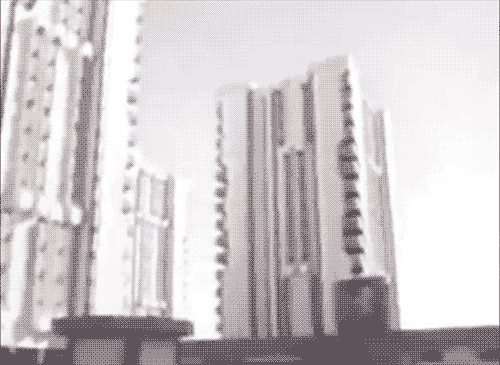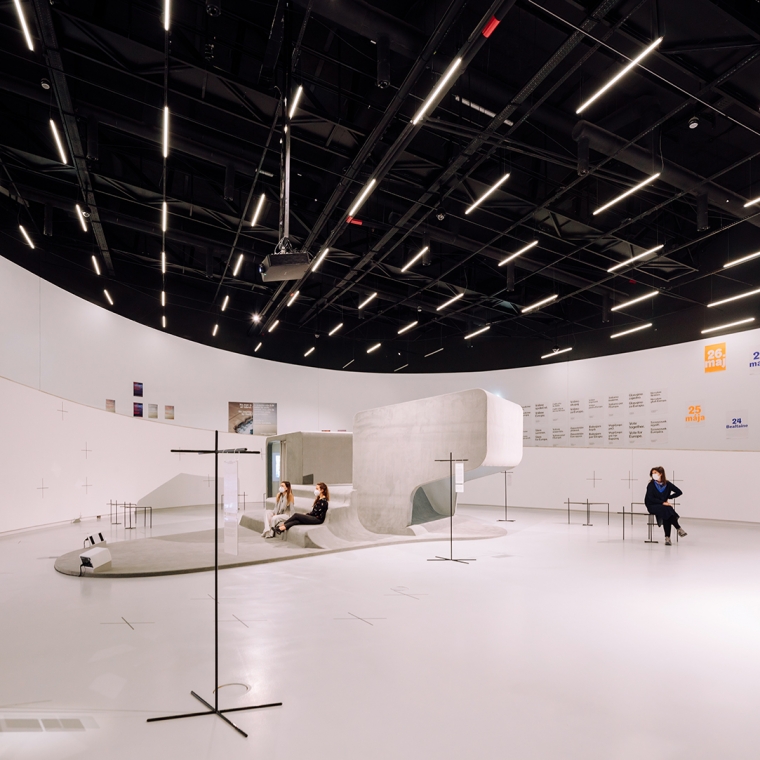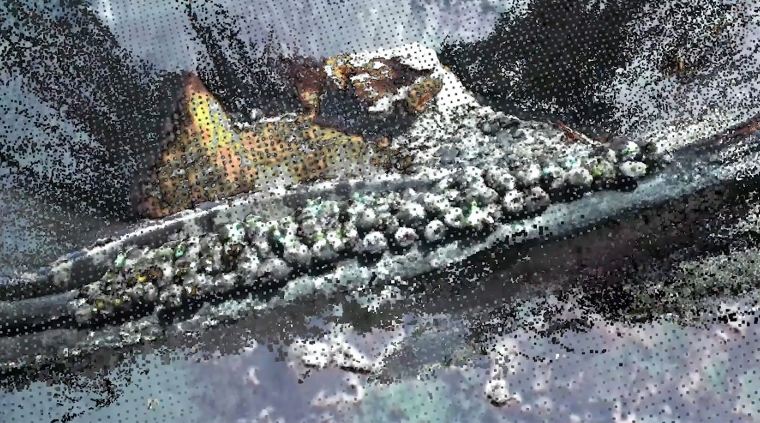Frames of (Un)Accountability
by Helene Kazan
Presented in the context of Cinematic Architectures [with]in Arab Geographies, a series of online lectures, curated by Róisín Tapponi, after "Battles in a Future Estate", by Ala Younis.
In the design and use of weapons, natural elements are harnessed as a destructive technology with human and non-human effects. What occurs in the process of deploying this harmful technology is that human accountability for the use of such violent force is distanced from the weapon’s engineered purpose. This lack of accountability, particularly in the case of aerial bombardment, has the effect of making the consequences appear beyond human control. Falling short of deterring the use of weapons, international law forms part of the technology of warfare, as powerful states engage its elastic parameters to legitimise the engineering of violence. The violent risk of aerial bombardment manifests itself in the materialisation of the lived-built environment. The home remains the only answer to safety against destruction brought through this force. However, access to shelter is restricted by entangled political, legal, social and economic conditions.
To dismantle the failings in international law and the asymmetric power structures it creates, an argument is made in critical legal theory for a study of the colonial and imperial legacies ingrained in the law and its practice. To expose the colonial nature of the authority of the law and in turn its limited frame of accountability, a radical change is required in how the law and state-perpetrated violence are perceived.
The nature of this specifically designed legal technology is unpacked through a de-colonial archival and filmic investigation into the little-known events that took place during the Allied invasion of Vichy French Lebanon and Syria in 1941. Occurring during the Second World War, it saw the first widespread use of aerial bombardment, legitimised in law as a military necessity, allowing two foreign forces to fight for control and access to natural resources across the territory. British archival evidence charts the neo-colonial strategies and interventions of planned destruction and development across Lebanon, Syria, Iraq, Palestine, Egypt and Jordan. This work traces the human and non-human effects of this, in an attempt to dismantle the ongoing capacity of law as structural violence.
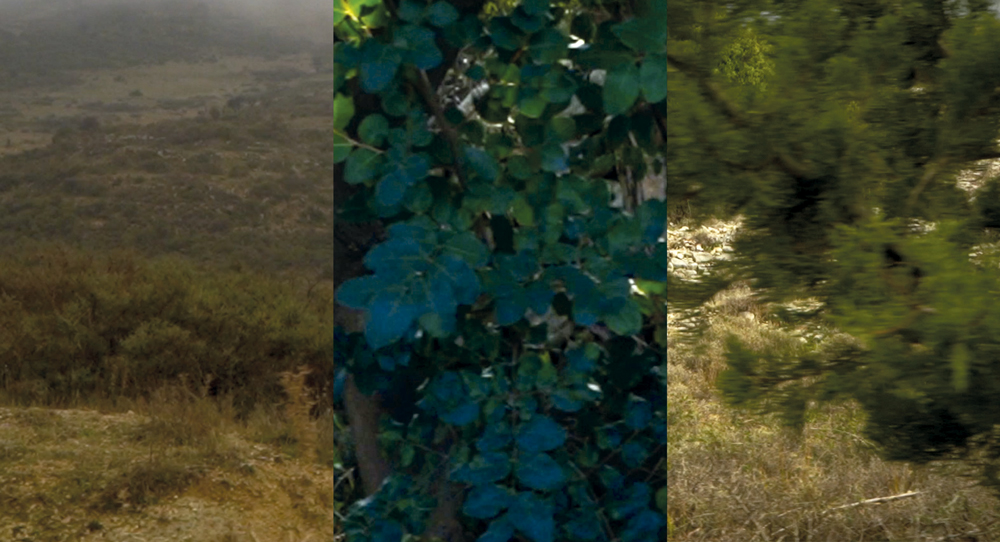
|
|
|
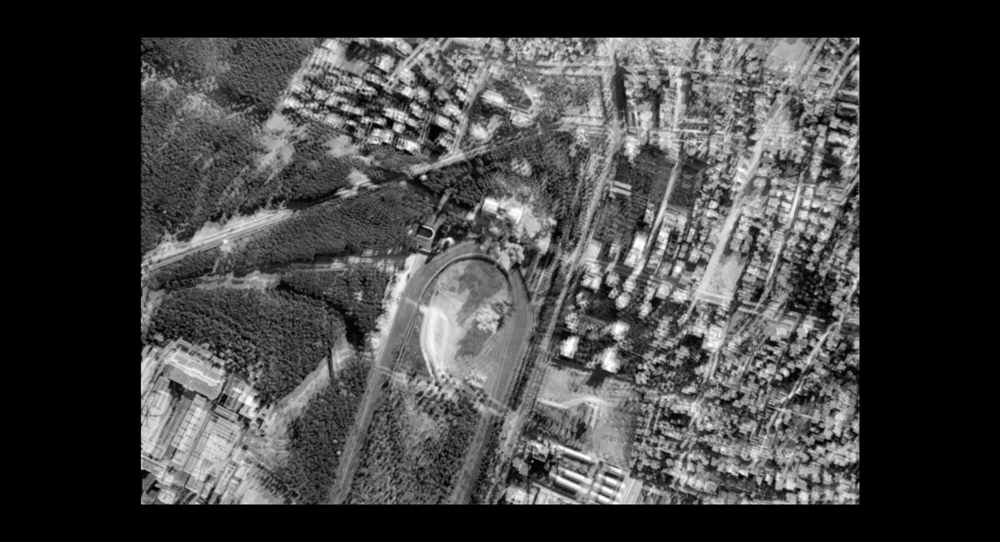
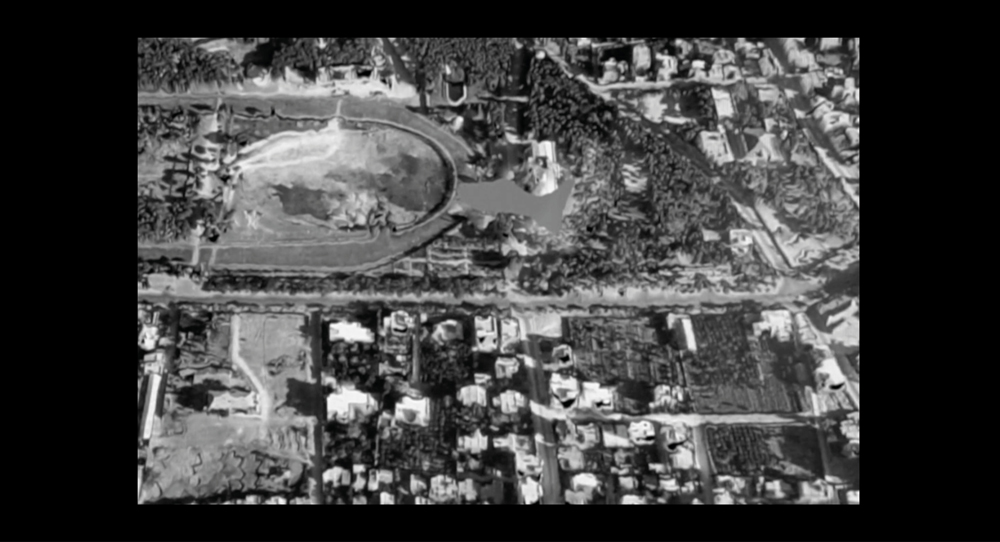
|
|
|
|
Curated by Aric Chen, with Martina Muzi, X is Not a Small Country – Unravelling the Post-Global Era includes nine newly created projects by international practitioners working across the fields of design, architecture and art who investigate, articulate and critique the current convoluted state of the world from multiple geographic perspectives.
|
Cinematic Architectures [with]in Arab Geographies is a series of open-ended online talks on maat ext. that focus on the role of the contemporary moving image and the production of space. The conversations are grounded within the contested borders of the so-called “Arab region”, and explore how human geographies, urban governance and architectural environments function in situ. Róisín Tapponi, curator of the cycle of films programmed to respond to the work Tactile Cinema (2021) by Bricklab, in the context of the exhibition X is Not a Small Country invites the prominent architectural and cinema researchers Ala Younis, Nora Akawi and Helene Kazan to navigate this terrain. This programme is a collaboration between maat and Art Jameel. |
|
|
“This work traces the human and non-human effects of the neo-colonial strategies and interventions of planned destruction and development across Lebanon, Syria, Iraq, Palestine, Egypt and Jordan, in an attempt to dismantle the ongoing capacity of law as structural violence.”
Helene Kazan
|
Helene Kazan is an artist and writer. As a research-based practitioner, Kazan's work investigates ‘risk’ as an integrated limit condition of conflict and capitalism, analysed at the intersection of international law and architecture. Drawing on critical legal theory, she uses feminist and de-colonial methods to engage forms of poetic testimony to dismantle the disproportionate human and non-human effects of risk. Kazan has exhibited and published work widely, including at the Mosaic Rooms, London, Shasha Movies, Ashkal Alwan/Digital Earth, Beirut, Serpentine Gallery, London, Tate Britain, London, HKW, Berlin and Beirut Art Center. Receiving her doctorate from the Centre for Research Architecture, Goldsmiths University of London, she was a Research Fellow at Forensic Architecture (2012-15) and a Vera List Center Fellow at The New School, NYC (2018–2020). Currently she’s a Lecturer in Critical Theory at Oxford Brookes University.
|
Róisín Tapponi is an Iraqi-Irish curator, film programmer, researcher, archivist and writer. She is the founder and programmer of Habibi Collective and has curated regional film festivals, including the Independent Iraqi Film Festival and the Queer Mena film festival. Tapponi has curated screenings at international institutions such as Sharjah Art Foundation and MoMA, and has been lecturing on cinema at various academic institutions, including Oxford University and Duke University. Currently, Tapponi is developing an independent streaming service for Middle East and North African cinema, Shasha Movies. She is also founder and editor of ART WORK Magazine, a critical art magazine for cultural workers operating on the margins. |



